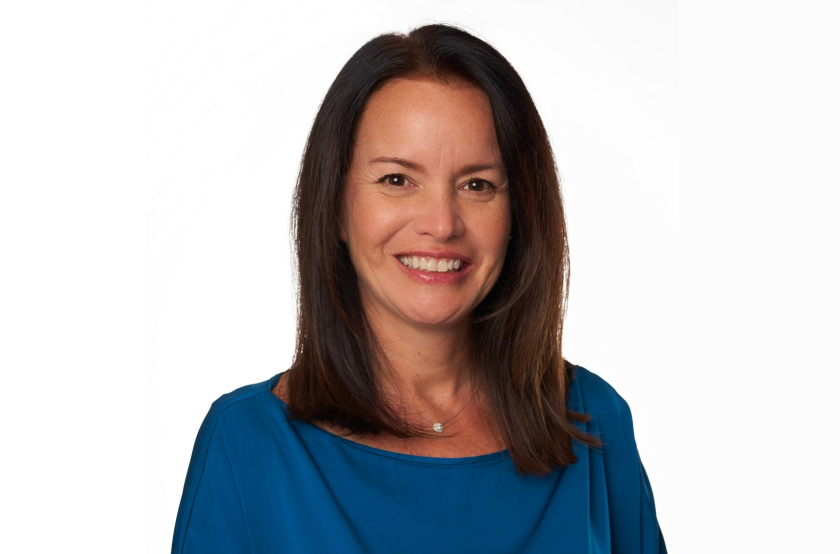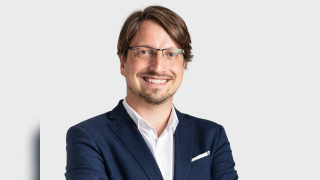Laurinda Pang now has one of the hottest seats in the industry, which she’s occupied since a few weeks after lockdown started. She is the elected chair of the Global Leaders’ Forum (GLF), a grouping of the top wholesale carriers from around the world.
As her day job, she is president of global customer success at Lumen Technologies, the new name for CenturyLink. But in 2020 she took over as the GLF chair from Marc Halbfinger, CEO of PCCW Global, who had served for two terms.
The GLF – set up under the aegis of the companies that support International Telecoms Week (ITW), the annual meeting organised by Capacity – brings together the leading carriers in the wholesale telecoms industry.
There are 30 members, from A1 Telekom Austria to Vodafone, including two Chinese carriers as well as AT&T and Verizon, Airtel, NTT and Telstra.
Halbfinger and his colleagues on the GLF board recognised the vital importance of the industry during the pandemic and started a programme called Keeping the World Connected as Covid-19 rolled around the globe.
Pang has kept up the momentum. “The GLF coalesced very quickly,” she says. The first task, under Halbfinger, was to get governments around the world to recognise the importance of the wholesale telecoms community. “We wrote an open letter to all governments to get infrastructure deemed as essential services,” Pang says.
Yes, in some societies that was already accepted, but “what the GLF did was facilitate conversations” that enabled everyone to set priorities. And that led on to a wider consideration of resilience across the business. “It was terrific how the industry came together.”
The organisation is supported by two staff at Capacity’s headquarters in London – Jussi Makela, director of the GLF, and Elena Harris, community member manager. “The GLF is all around interoperability and collaboration,” says Pang. “We’ve had some terrific working groups.”
If anything, she says, the pandemic “has helped the GLF identify its purpose”. Until now, members have worked with the organisation on a number of issues, sharing best practices on issues including well-being, working with CEOs such as Colt’s Keri Gilder.
We have been enduring the pandemic since early 2020 and, in April 2021, we’re still living through it. The US has lost more people to Covid-19 than it did in World Wars One and Two combined, and the total is approaching the country’s 675,000 death toll for the Spanish flu of 1918.
The US Centers for Disease Control estimates that that outbreak, first seen in Kentucky and now identified as the H1N1 virus, killed 50 million globally – 17 times the number we’ve lost to Covid so far, 103 years later.
In the current pandemic, France, Italy and the UK have between them lost a third of a million. Brazil alone has lost 360,000. Mexico’s death toll is 210,000. India had lost more than 180,000 by mid-April, but the number is escalating rapidly.
In some countries the rate is slowing down; in others, there is little sign of this.
And that’s just – if you’ll forgive the expression – the deaths. Of the 130 million or so who have caught the disease but have not died, many are lingering with long Covid, sometimes for weeks or months. Medical scientists across the world are assessing the long-term effects.
As a result, we’ve all experienced lockdown in different ways. We’ve stopped going into offices; we’ve stopped meeting business partners for lunch or friends and colleagues for a coffee or a beer.
We’ve stopped going to conferences and exhibitions, stopped flying almost entirely. Our only human contact for business has been electronic – and pretty much most human contact for our personal lives has been electronic too.
Just pause there. Hasn’t it been pretty amazing that many of us have been able to do that? People have been at work, albeit in their homes, working with colleagues, selling to or buying from business partners, resolving problems, planning developments and settling disputes – including legal disputes – since the start of 2020.
Just think where we’d have been if this disease had spread around the world 20 or even 10 years ago.
Yes, apologies to those who have lost friends, family and colleagues, who have lost their jobs, and to those who have continued to work in essential roles where human contact is essential – in hospitals, in education, in childcare, in shops, in law enforcement, in public transport.
But for millions working from home, the telecoms industry has kept us all functioning. And the GLF has helped.
The forum also has a wider grouping, the GLF Community, “which allows non-wholesale carriers and others in the ecosystem that are interested in learning from the industry or participating in events and working groups”, says Pang.
Key in the activities over the past year has, of course, been a resilience working group. “Maybe we should have done that earlier, but the GLF stepped
up very quickly.”
The broader reach from the GLF Community “could have started earlier”, she says, giving access to “a larger group of organisations”.
Remote working, which we all plunged into within a few days between January and March 2020, “was an experiment thrust upon us. Action had to be taken.”
As all of us who have been through it can testify, lockdown marked a rapid transition about which we had no choice. Managers who until early 2020 had set their face against letting colleagues work from home suddenly had no alternative.
Pang explains: “There was no option but trusting your employees, and this notion of flexibility with both customers and employees. The pandemic pushed us. We recognised that this is doable.”
Of course, it wasn’t a matter of just continuing regular business remotely. At the same time companies have seen staff leave and have hired replacements, all done electronically. “I’ve seen a CEO search being done remotely and then the new CEO meeting the board of directors remotely,” says Pang.
“It’s democratised everything,” she adds. “Remote working does work.” In fact, perhaps, productivity has increased, “with no commuting, no time on airplanes”. But now we’re firmly into year two. There is understandable concern about well-being – of people in the industry as well as of customers – “and there’s disruption to the core business”, says Pang, but on the other hand some things are easier. “Movement of talent is much easier,” as everyone is remote.
“We’re re-establishing the priorities for 2021 and beyond,” says Pang. The GLF should take a broader leadership role in considering “the well-being of society, diversity and inclusion and the natural environment”, she says – topics that fall under the ESG category: environmental, social and corporate governance.
Then there is “the trusted use of technology” – including the use of data and security, and collaboration across industry – and automation, future-proofing carriers, improving customer experience and making it easier to do business “among ourselves and our partners”, she adds.
“All of these are within the context of the key priorities of the GLF to sustain ubiquitous operations.”
During the pandemic, security threats have become worse, she notes. “The amount of ransomware has increased substantially,” not helped by all the devices remotely connected into companies’ networks insecurely.
“Are people keeping up with their security training?” she asks.
How does she see the future further on? “It would be naïve to think I could set priorities for a decade,” she smiles from Denver. But, for the moment, “we have a lot of work to do.”
Of course, Pang has experienced the pandemic just as the rest of us. “I am fed up with videos,” she says via Microsoft Teams. “Getting on a plane and having a personal conversation with someone is really hard to replicate. I miss the people.”
And she’s looking forward to “interaction with my peers across the globe”, she adds. We’re speaking as my Capacity Media colleagues have decided that this year’s International Telecoms Week will be moved* to the end of August and early September, so it can be held at least partly in real life. “It’ll be interesting to see how many people come to it,” says Pang.
Meanwhile, she says the ITW board that she chairs has been meeting more frequently using video than it does when it meets at real-life events. She adds, smiling: “Meetings are shorter.” So, there is an upside.
* Sunday August 29 to Wednesday 1 September, at the Gaylord National Resort & Convention Center, in National Harbor, Prince George’s County, Maryland, which is on the east bank of the Potomac just south of Washington DC.






